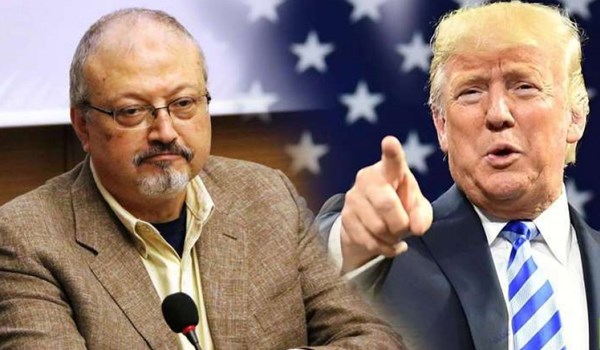Khashoggi’s Murder Is a Test for World’s Conscience

Erdogan said the Saudi officials arrived in Turkey the day before Khashoggi went
to the consulate October 2 to do some paperwork for his upcoming marriage. The
Washington Post columnist – a mild critic of Saudi Arabia’s de facto ruler,
Crown Prince Mohammed bin Salman – was never seen again. The Saudi government,
after repeated denials, now admits that Khashoggi was killed inside the
consulate in what it terms a "rogue operation” or "botched interrogation".
However, Erdogan said various members of the Saudi team, including a military
general, conducted some kind of survey of a forest near Istanbul and also
disabled security cameras near the Saudi consulate before Khashoggi arrived.
After his disappearance, the officials abruptly returned to Saudi Arabia. In his
words, "Jamal Khashoggi was the victim of a very cruel murder. We have all the
evidence.”
Erdogan’s soft rhetoric on the issue notwithstanding, the question now is what
next? This is important, because just like many experts and newspaper
editorials, Erdogan, without pointedly mentioning Crown Prince Mohammed, said
the order to kill Khashoggi must have come from high up within the Saudi
government.
In that case, this is a great test for the world’s conscience to act,
particularly for governments in the West which keep telling us they don’t
hesitate to act when it comes to protect human rights and hold to account those
who are in violation.
Lest we forget, when news broke this year that former Russian spy Sergei Skripal
and his daughter Yulia had come into contact with the deadly nerve agent
Novichok in the English city of Salisbury, London and its allies acted so fast
that they never waited for a Russian report. They all pointed the finger at
Moscow, followed by the expulsion of Russian diplomatic corps from not just
Britain but a host of other western states and imposition of sanctions.
But when reports emerged of another attack - Saudi Arabia’s abduction and murder
of Khashoggi - the response was different. Words of condemnation were replaced
with expressions of concern, and threats of reprisals swapped with calls for
patience. Implicit in this response was concern for what would be at stake if
the West were to confront the Wahhabi regime, with whom they share hundreds of
billions of pounds in arms trade.
Still, evidence has mounted over Saudi Arabia’s official role in Khashoggi’s
death, and the West has been forced to address it. Western companies and
high-profile officials dropped out of the Saudis’ so-called "Davos in the
Desert” investment conference.
Following Saudi Arabia’s statement that Khashoggi was killed in a "rogue
operation,” much of the world community didn’t buy the claim. They called on the
regime to provide "urgent” clarification about exactly what happened to
Khashoggi.
Though human rights groups and United Nations also called for an independent
probe, the world body has so far stopped short of detailing the potential
international repercussions for the Saudi regime, with whom it had been at odds
over the illegal war on Yemen, although its time-to-time condemnations have
never been pursued by real action to punish Riyadh for its aggressive behavior
and crimes either.
Irrespective of political considerations and Saudi money, the UN now knows fully
well that the appalling stories are true, they are fundamentally incompatible
with UN values, and it needs to act accordingly.
This is in no way an attempt for retaliation, rather to ensure that there are no
double standards regarding human rights violations by any UN member state.
Indeed, when some Western governments are giving the Saudi regime the benefit of
the doubt because of arms sales, the UN’s failing to respond in a lawful manner
that should include sanctions could be regarded as hypocrisy.
This is a test for the UN’s global leadership. The UN should defend and uphold
the international rules-based order by holding Saudi Arabia to account.
Otherwise, it would be exposed to criticism of hypocrisy and for not applying
the same standards to Saudi Arabia.
Source:Fars
















